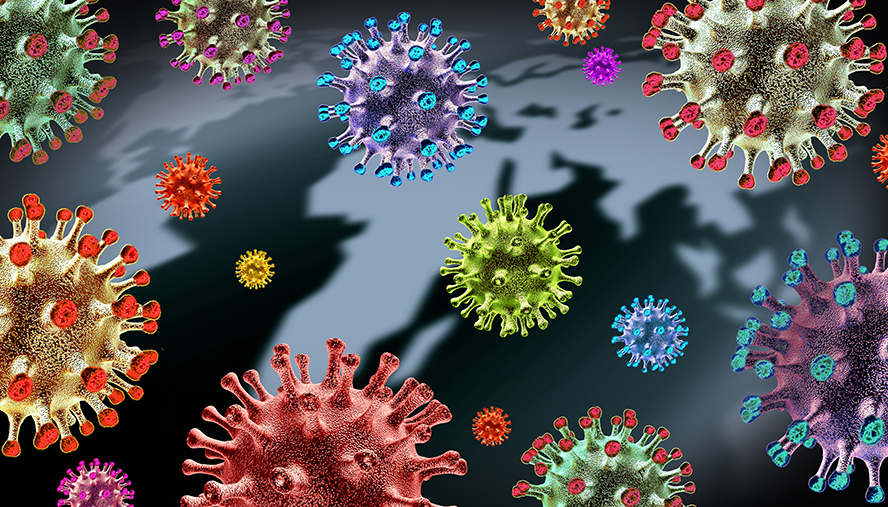‘The variants B.1.617.1 and B.1.617.2 were first identified in India’.
New Delhi: The deadly outbreak of the second wave of Covid-19 in India is associated primarily with two variants of the virus which has been dominating the new cases in India since April this year.
The two notorious variants–B.1.617.1 and the B.1.617.2 also tagged as the Variant of Concern (VoC) and Variant of Interest (VoI) by the World Health Organisation–dominated over 37% of the total Covid-19 positive cases since its outbreak in India in January last year, according to the open-source data available on outbreak.info. The variants B.1.617.1 and B.1.617.2 were first identified in India. While the earlier B.1.617.1 was active since February this year and was causing over 30% of the Covid-19 cases during the early days of February and March, the other variant which is a sub lineage of the B.1.617.1 is active in India since April till present day and has been spreading rapidly.
Scientists and experts say that these two variants are highly transmissible and severely infective, due to which hospitalisation cases have increased since the last two months.
The variant B.1.617.1 was responsible for almost 50% of the total Covid-19 positive cases in Maharashtra and Haryana, while for Delhi, this variant constituted 8% of the total Covid-19 infection. But, it is pertinent to mention here that during the surge of Covid-19 cases between March till April, this B.1.617.1 was responsible for over 35% of the cases across India. However, this variant B.1.617.1 had created a sub linage of its variant through mutation and this, according to experts, have become more infective and transmissible than its parent lineage and have been causing the massive surge of the number of Covid-19 positive cases across the country.
In the first week on April, when the positive cases of Covid-19 began to slowly rise in India, the variant B.1.617.2 started to spread even faster than its parent variant B.1.617.1. According to the genome sequencing data available on Outbreak.info, this B.1.617.2 variant caused over 60% of the total Covid-19 infections in the country.
During the peak infection period which is between the last week of April and the first two weeks of May, this variant B.1.617.2 was responsible for over 70-80% of the Covid 19 infection. This means out of 100 persons being infected with Covid-19 during the above period, almost 70 to 80 Covid-19 positive individuals were being infected by this variant of the virus.
Virologists say that mutation in a virus is a natural phenomenon and the mutation of a virus happens when the virus is rapidly multiplying itself inside the human body by replicating and copying its genes. The mutation happens when the virus during its period of multiplying and copying genes alters its present genomic structure which sometimes renders the virus more infectious or sometimes weakens the virus. These two variants have not only been rapidly spreading in India, but countries like the UK and the USA are also witnessing cases where this variant B.1.617.2 and B.1.617.1 are predominant. The UK, for example, has over 500 new cases with this B.1.617.2 and B.1.617.1 variants.
According to Epidemiologist Eric Feigl-Ding’s recent tweet hospitalisations are increasing in the UK with a surge in the Covid-19 cases bearing the B.1.617.2 variant. He says that a 20% increase in hospitalisation has been witnessed in the UK in the last one week.
India had witnessed over 4 lakhs positive Covid-19 cases during the first few weeks of May with increasing number of hospitalisation and increased demand for oxygen from those who had been infected with this virus’ variants. India also witnessed an increasing number of deaths in the last few weeks and the country had been recording over 4,000 deaths due to the virus’s severe infection.

